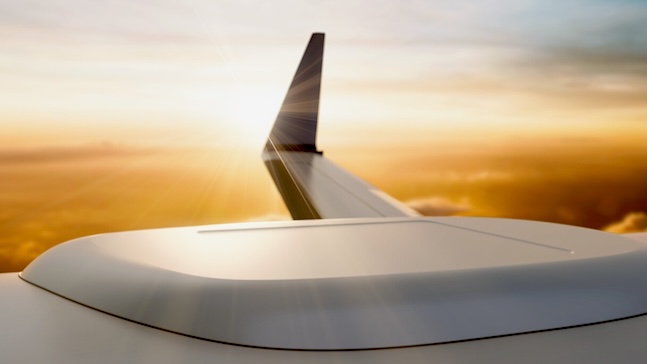World
Amazon’s Project Kuiper Partners with JetBlue for In-Flight Wi-Fi

Amazon has announced a significant partnership with US-based airline JetBlue, making it the first carrier to utilize its Project Kuiper low Earth orbit (LEO) satellite constellation for in-flight Wi-Fi services. This collaboration aims to enhance JetBlue’s free in-flight Wi-Fi on select aircraft, with the initiative set to launch in 2027.
The integration of Project Kuiper’s technology is expected to improve passengers’ streaming capabilities and overall connectivity during flights. The system will employ an aviation-specific customer terminal, which features a full-duplex, Ka-band phased array antenna. This advanced technology promises to deliver download speeds of up to 1 Gb/s on a single device, making it suitable for bandwidth-intensive applications.
JetBlue has been a pioneer in offering complimentary in-flight Wi-Fi since 2013, initially partnering with Viasat to provide connectivity via geostationary satellites. The collaboration with Amazon marks a new chapter in JetBlue’s efforts to enhance passenger experience.
In addition to its agreement with JetBlue, Amazon has also established a partnership with Airbus earlier this year, focusing on integrating Kuiper’s connectivity into its fleet. This move underscores Amazon’s intention to expand its presence in the satellite communications sector.
Over the past four months, Amazon has successfully launched 102 satellites as part of its Project Kuiper broadband constellation. To support these deployments, the company operates a $140 million facility at the Kennedy Space Center in Florida. Amazon plans to begin delivering services later this year, with an initial target for commercial service launch set for the end of 2024.
Meeting regulatory requirements is crucial for Project Kuiper, as it must comply with a Federal Communications Commission (FCC) mandate to launch half of its planned 3,236 satellites by July 2026. This regulatory pressure adds urgency to Amazon’s plans.
In the competitive landscape of satellite-based Wi-Fi, Project Kuiper faces stiff competition from Elon Musk’s Starlink, which has been making strides in similar services. Recently, T-Mobile US announced a free Wi-Fi service for Southwest Airlines customers, set to begin on October 24, following a similar agreement with Alaska Airlines. Other competitors in this sector include EchoStar, Eutelsat, and direct-to-device companies like AST SpaceMobile and Lynk Global.
As Project Kuiper gears up to redefine in-flight connectivity, its collaboration with JetBlue marks a pivotal moment for both companies. With advancements in satellite technology, air travel may soon offer enhanced digital experiences, setting new standards in passenger service.
-

 Lifestyle3 months ago
Lifestyle3 months agoLibraries Challenge Rising E-Book Costs Amid Growing Demand
-

 Sports3 months ago
Sports3 months agoTyreek Hill Responds to Tua Tagovailoa’s Comments on Team Dynamics
-

 Sports3 months ago
Sports3 months agoLiverpool Secures Agreement to Sign Young Striker Will Wright
-

 Lifestyle3 months ago
Lifestyle3 months agoSave Your Split Tomatoes: Expert Tips for Gardeners
-

 Lifestyle3 months ago
Lifestyle3 months agoPrincess Beatrice’s Daughter Athena Joins Siblings at London Parade
-

 World3 months ago
World3 months agoWinter Storms Lash New South Wales with Snow, Flood Risks
-

 Science4 months ago
Science4 months agoTrump Administration Moves to Repeal Key Climate Regulation
-

 Science2 months ago
Science2 months agoSan Francisco Hosts Unique Contest to Identify “Performative Males”
-

 Business3 months ago
Business3 months agoSoFi Technologies Shares Slip 2% Following Insider Stock Sale
-

 Science4 months ago
Science4 months agoNew Tool Reveals Link Between Horse Coat Condition and Parasites
-

 Sports3 months ago
Sports3 months agoElon Musk Sculpture Travels From Utah to Yosemite National Park
-

 Science4 months ago
Science4 months agoNew Study Confirms Humans Transported Stonehenge Bluestones









